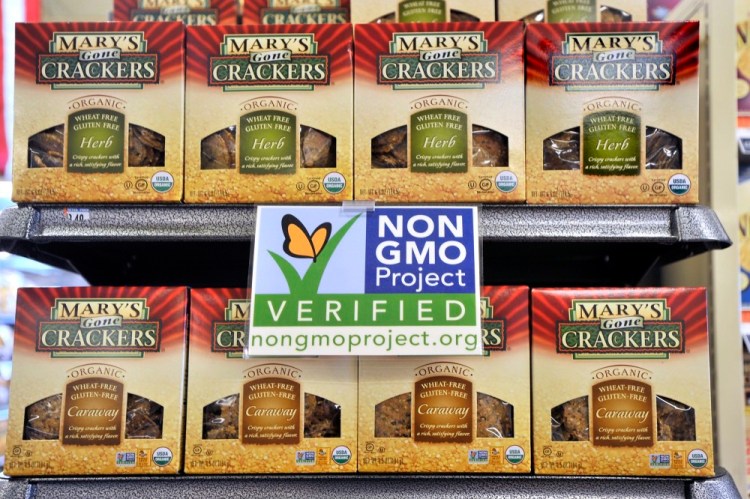The food industry spent $9 million lobbying Congress to oppose laws requiring labeling for genetically modified products in the first quarter of this year, nearly matching its total spending for all of last year, a new report said.
The Washington D.C.-based Environmental Working Group said big spenders included the Grocery Manufacturers Association, which spent $1.2 million, and the Coca-Cola Co., which spent $2.6 million, on anti-labeling lobbying in the first three months of the year.
The group said that the total from lobbying expenditure forms citing genetically engineered labeling for the first quarter nearly matched the $9.3 million tallied in all of 2013.
The increased spending underscores the pitched battle over labeling laws, which are being proposed in several states.
In May, Vermont became the first state to require labeling of genetically engineered products, a rule that is being challenged by the food industry in court. Oregon and Colorado will vote on labeling later this year.
Connecticut and Maine have passed labeling regulations that only take effect if other northeastern states do the same.
Labeling initiatives were defeated in California and Washington.
Numerous polls show Americans are in favor of labels that disclose if foods contain genetically modified organisms. This despite there being no definitive science showing that such foods are harmful to human health.
Proponents say the technology, which alters plants’ genes in a lab, is a way to boost yields, build disease resistance and feed hungry nations. About 93 percent of all soybeans and 90 percent of all corn grown in the U.S. are genetically modified varietals, according to the U.S. Department of Agriculture.
Up to 80 percent of processed foods in America contain genetically engineered ingredients, according to the Grocery Manufacturers Assn.
Opponents of labeling laws say the initiative is too costly and puts companies selling genetically engineered foods at a needless disadvantage.
Some major companies such as General Mills Inc. have spun skepticism over bioengineering into a marketing opportunity. Earlier this year, the food giant dropped genetically engineered ingredients from its signature Cheerios breakfast cereal.
Send questions/comments to the editors.



Success. Please wait for the page to reload. If the page does not reload within 5 seconds, please refresh the page.
Enter your email and password to access comments.
Hi, to comment on stories you must . This profile is in addition to your subscription and website login.
Already have a commenting profile? .
Invalid username/password.
Please check your email to confirm and complete your registration.
Only subscribers are eligible to post comments. Please subscribe or login first for digital access. Here’s why.
Use the form below to reset your password. When you've submitted your account email, we will send an email with a reset code.